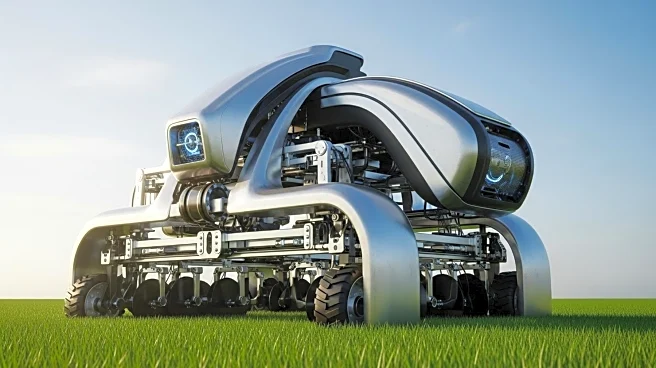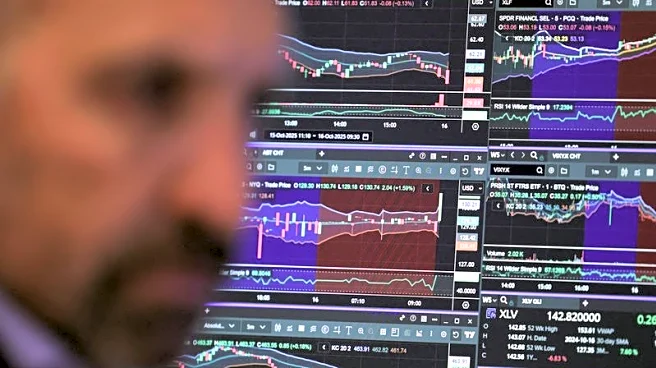What is the story about?
What's Happening?
The Agricultural Robots Market is experiencing significant growth, with projections indicating an increase from USD 5.2 billion in 2024 to USD 18.7 billion by 2033. This growth is driven by the adoption of automation and robotics in farming practices aimed at improving efficiency and reducing labor costs. Robots are being utilized for tasks such as planting, harvesting, weeding, and crop monitoring, which enhance productivity and precision agriculture. Technological advancements in AI, computer vision, and sensor-based systems are further propelling market expansion. The demand for sustainable farming and government initiatives promoting smart agriculture solutions are supporting this growth globally. The integration of robotics with IoT and data analytics allows for real-time monitoring and optimized farm management, transforming traditional farming practices.
Why It's Important?
The expansion of the Agricultural Robots Market is crucial for the future of farming, as it promises increased efficiency and sustainability in agricultural practices. By reducing labor costs and enhancing precision, these technologies can significantly impact the agricultural sector, potentially leading to higher yields and better resource management. Stakeholders such as farmers, agricultural companies, and technology providers stand to benefit from these advancements. The integration of AI and IoT in agriculture could lead to more informed decision-making and improved crop management, addressing challenges such as food security and environmental sustainability.
What's Next?
The market is expected to continue its growth trajectory, with further advancements in AI and robotics likely to enhance the capabilities of agricultural robots. Companies involved in this sector may focus on developing more sophisticated technologies and expanding their product offerings. Additionally, government policies and incentives could play a role in accelerating the adoption of these technologies. As the market evolves, stakeholders will need to adapt to new technologies and practices to remain competitive.
Beyond the Headlines
The rise of agricultural robots may also have ethical and social implications, such as the displacement of traditional farming jobs and the need for new skill sets among workers. The shift towards automation in agriculture could lead to changes in rural economies and communities, necessitating policies that address these transitions.
















